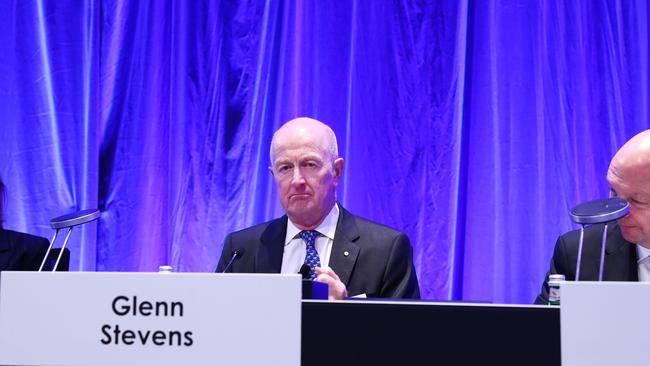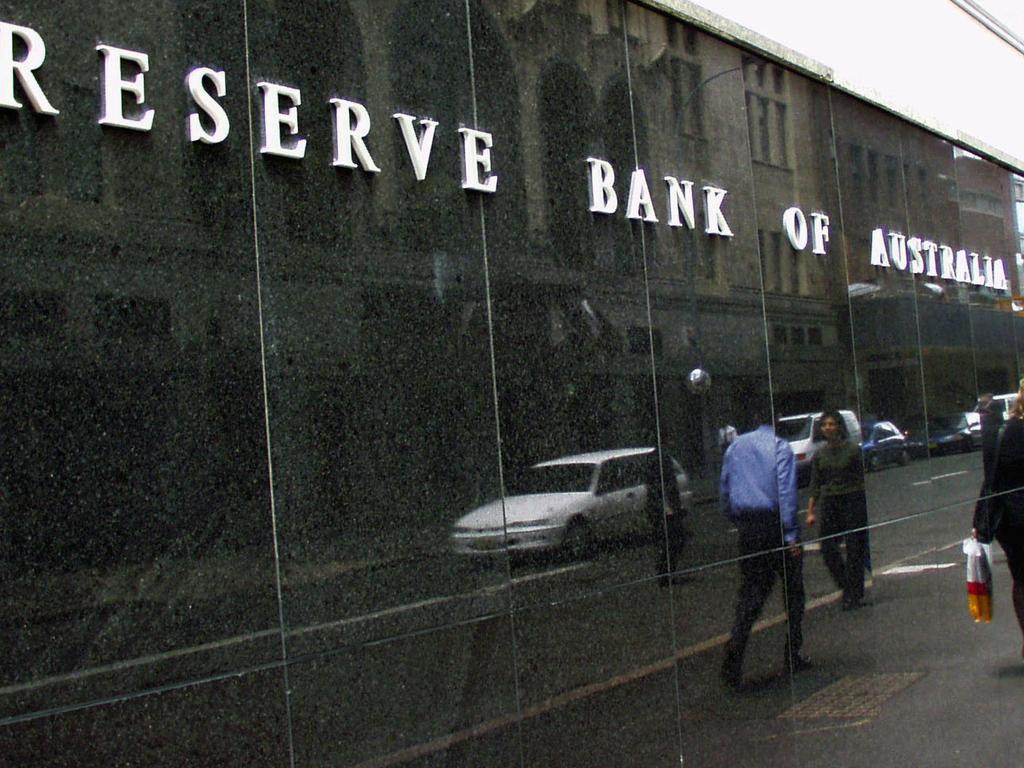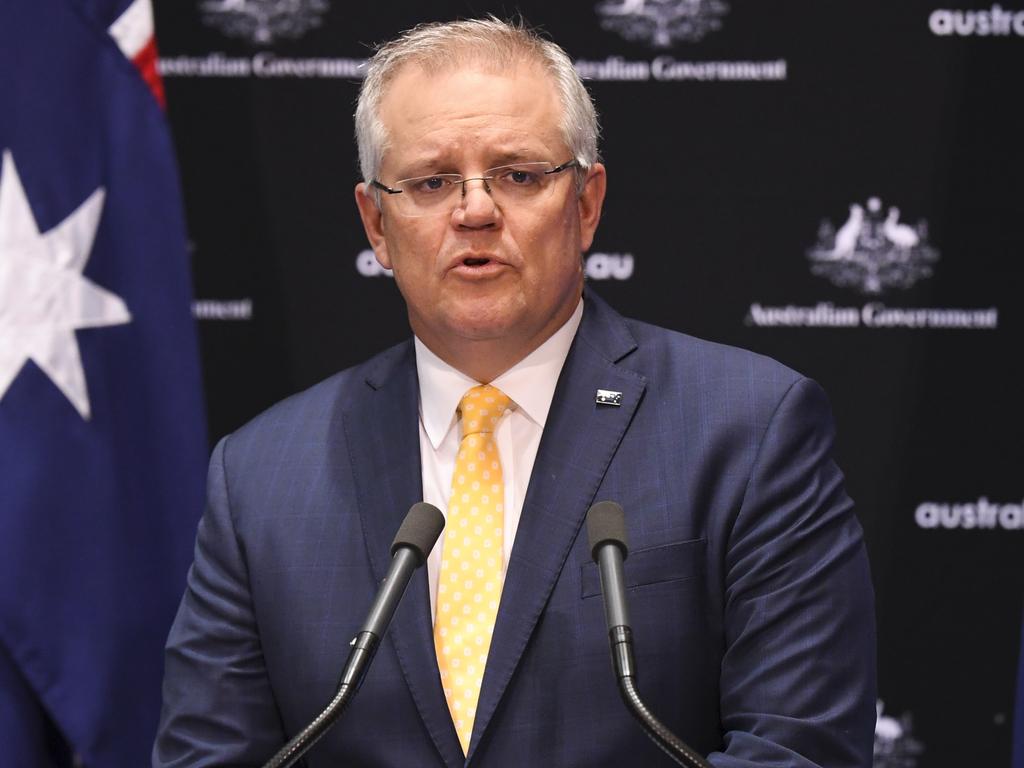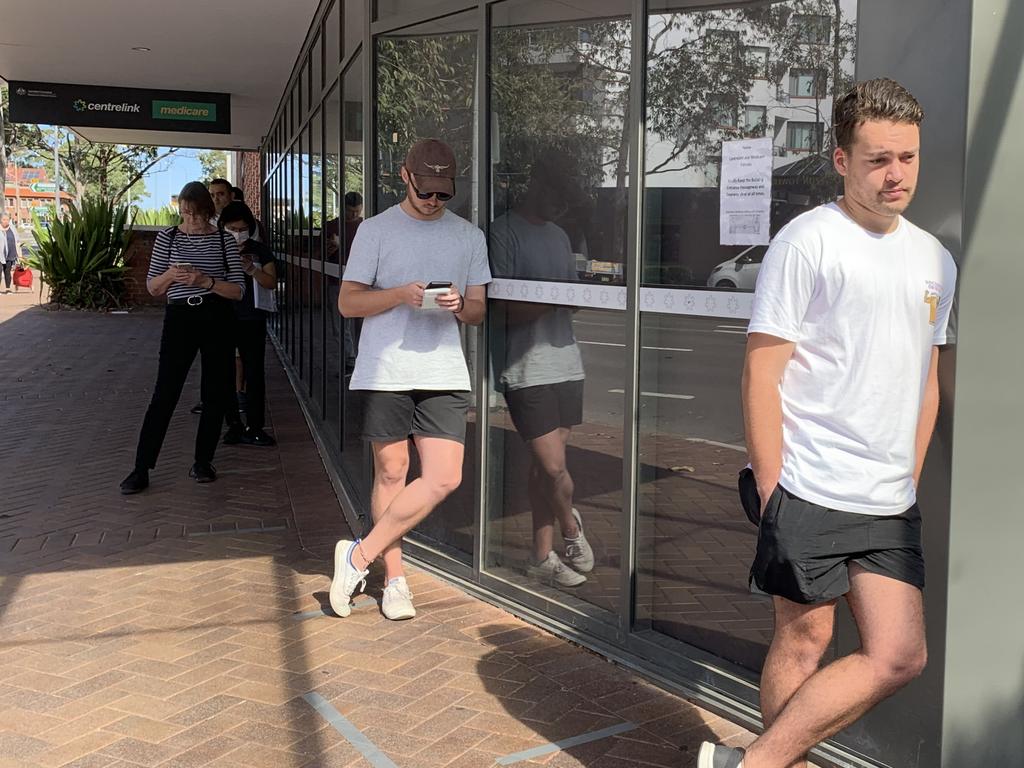Former RBA boss Glenn Stevens urges faster economic restart to tackle COVID-19 debts
The sooner the economy restarts the sooner we can get started on paying back ballooning government debt, says former RBA chief.

Former Reserve Bank of Australia governor Glenn Stevens says the economy should be reopened sooner rather than later if the nation is to come to grips with swelling federal government debt, induced by the COVID-19 turmoil.
Speaking at a virtual Macquarie Australia Conference on Tuesday, Mr Stevens warned of the lasting impact of the pandemic-led recession, which would hit Australia much harder than the global financial crisis and see unemployment stay high for several years.
“For Australia the real economy impact is obviously much bigger than the downturn at the end of 2008 was, because it’s a very different event,” he said. “It’s a health event which has then been manifested through to a huge economic contraction because of the response to the health event.”
Mr Stevens said the government’s borrowing to stimulate the economy through the business hibernation period was warranted, but it was based on assumptions for resuming activity and being able to eventually service that debt.
“You could get the initial phase of the recovery happening reasonably smartly if we were allowed to stay at work and stay out of the house,” he added.
“But there will be some durable impact and damage I think that’s unavoidable.”
The federal government has outlined three main COVID-19 stimulus packages amounting to more than $200bn, to help businesses and employees navigate the fallout. The RBA has also cut official rates to a new record low of 0.25 per cent and started quantitative easing measures, which pump more money into the economy.
Mr Stevens labelled it a “tricky balancing act” for policymakers as they traversed the next steps to manage a restarting of activity.
“What we are doing of course is borrowing a lot of money to do that support, against an assumption that in the future the country and the government has the income to service that obligation and ultimately one day repay it,” he said.
“That’s the right assumption to make, but there will come a moment not far away where we have to do things that allow that income to be earned. We have to be able to reopen the economy subject to managing the health side.”
New Zealand Prime Minister Jacinda Ardern will join the national cabinet meeting on Tuesday to discuss her government’s handling of the health and economic crisis as well as opportunities to restart trans-Tasman travel. The national cabinet will also receive a presentation on COVID-safe workplaces in preparation for businesses reopening and consider the scale of relaxation of restrictions before Friday’s meeting.
Mr Stevens said some sectors could resume activity relatively quickly, but there was still uncertainty about the strength of any rebound which would take some time.
“It’s plausible that there’s a fairly quick resumption of certain lines of activity that have been badly affected, even that said though, it strikes me that by the end of the year the level of activity is still going to be noticeably below where it was say at the end of last year.
“It’s very unlikely that we can avoid that.
“In some of the most affected sectors, like hospitality... the recovery is probably going to be beginning very soon at an unknown speed. It will depend on how quickly the reopening can happen and how durable it is if we have second waves, third waves (of virus infection) and have to re-tighten again, of course that will set things back.”
Treasurer Josh Frydenberg will on Tuesday lay down the platform for unlocking COVID-19 social restrictions, revealing a $4bn hit to economic activity for every extra week they remain in place.
Mr Stevens was the RBA governor between 2006 and 2016, and was succeeded by current central bank boss Philip Lowe. He is also a non-executive director of Macquarie.
Asked if he missed the RBA role, Mr Stevens said: “I can’t say I do.”
“Every governor gets some event, some big event they have to cope with... Now I think, the GFC maybe in some respects wasn’t as big a deal as this one.”








To join the conversation, please log in. Don't have an account? Register
Join the conversation, you are commenting as Logout